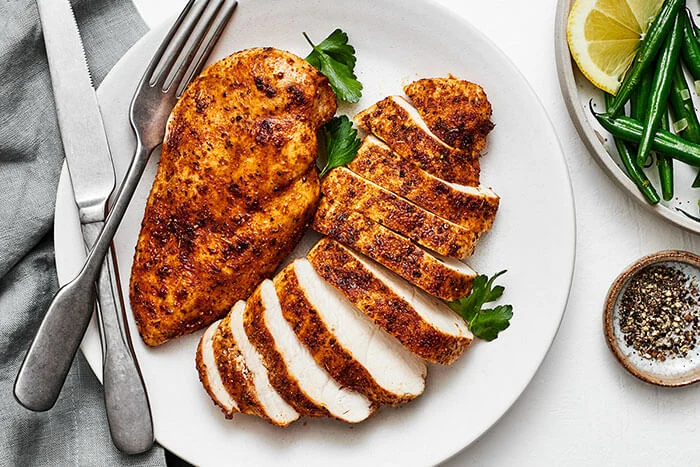Can a Dog Eat Cooked Chicken?Exploring the Benefits and Risks
One common question is whether dogs can eat cooked chicken. Cooked chicken is a popular protein source for many dog owners, and it’s often included in various homemade dog food recipes. However, it’s essential to understand the benefits, risks, and best practices when incorporating cooked chicken into your dog’s diet.

The Nutritional Benefits of Cooked Chicken
Cooked chicken is not only a tasty treat for dogs but also offers several nutritional benefits:
- High-Quality Protein: Chicken is an excellent source of lean protein, which is essential for maintaining muscle mass and overall health in dogs. Protein supports various bodily functions, including the immune system, skin health, and energy levels.
- Rich in Vitamins and Minerals: Cooked chicken contains several vitamins and minerals, including B vitamins (like niacin and B6) and phosphorus. These nutrients play a crucial role in energy metabolism and bone health.
- Easily Digestible: Many dogs find cooked chicken easy to digest, making it a suitable option for dogs with sensitive stomachs or those recovering from illness.
- Low in Fat: Skinless, boneless chicken breast is low in fat compared to other protein sources, making it a healthier option for dogs that need to manage their weight.
How to Safely Serve Cooked Chicken to Your Dog
If you decide to include cooked chicken in your dog’s diet, here are some important guidelines to follow:
- Cook Thoroughly: Ensure that the chicken is fully cooked to eliminate the risk of harmful bacteria such as Salmonella. Undercooked or raw chicken can pose health risks to both dogs and humans.
- Remove Bones and Skin: Always remove bones from cooked chicken before offering it to your dog. Cooked bones can splinter and cause choking hazards or serious internal injuries. Additionally, avoid giving your dog the skin, as it can be high in fat and may lead to digestive issues.
- Serve in Moderation: While cooked chicken can be a nutritious addition to your dog’s diet, it should not replace their regular dog food. Treat chicken as a supplement or occasional treat. It’s important to maintain a balanced diet that includes all necessary nutrients.
- Monitor for Allergies: As with any new food, it’s essential to watch for any signs of allergic reactions. Symptoms may include itching, swelling, or gastrointestinal upset. If you notice any unusual behavior, discontinue feeding chicken and consult your veterinarian.
- Avoid Seasonings: When preparing chicken for your dog, avoid using seasonings, onions, garlic, or sauces, as these can be harmful to dogs. Plain, unseasoned chicken is the best option.
Potential Risks of Feeding Cooked Chicken
While cooked chicken can be a healthy addition to your dog’s diet, there are a few potential risks to consider:
- Nutritional Imbalance: Relying too heavily on cooked chicken as a primary food source can lead to nutritional deficiencies. Dogs require a balanced diet that includes various protein sources, carbohydrates, fats, and essential vitamins and minerals.
- Digestive Issues: Some dogs may experience digestive upset if they are not used to eating chicken or if it is introduced too quickly into their diet. Always introduce new foods gradually to avoid gastrointestinal issues.
- Weight Gain: While chicken is a healthy protein source, it is still important to consider the caloric intake of your dog. Treating your dog with chicken regularly without adjusting their overall diet can lead to weight gain.
Conclusion
In conclusion, cooked chicken can be a nutritious and enjoyable addition to your dog’s diet when prepared and served correctly. Its high protein content and digestibility make it a favorite among many pet owners. However, it is crucial to follow safe food handling practices, remove bones and skin, and avoid adding harmful seasonings.
As always, moderation is key. Cooked chicken should complement your dog’s regular food rather than replace it entirely. If you have any concerns about introducing cooked chicken into your dog’s diet or if your dog has specific dietary needs, it’s best to consult with your veterinarian for personalized guidance. By making informed choices, you can help ensure your canine companion stays happy and healthy while enjoying delicious meals! can a dog eat raw meat?
